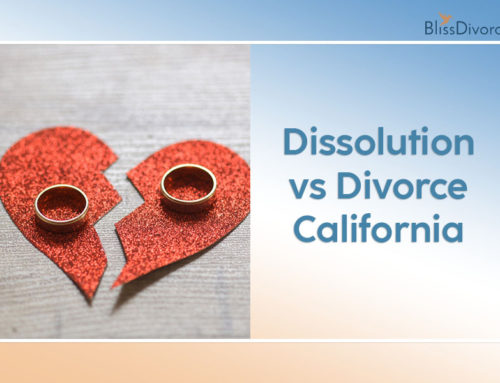The short answer is, “yes!”
If both spouses make an equal amount of money and have comparable expenses, if one spouse earns less but is fully able to support themselves, or if the spouse ordinarily entitled to alimony is already living with their new partner, you may not need to pay alimony or spousal support.
Suppose you choose a method of divorce that does not involve trial or a judge’s decision. In that case, more creative solutions are possible (i.e., settlement agreements), which might otherwise not be, allowing the spouse who earns less to waive spousal support or alimony. Since you never know what a judge will rule, reaching a fair agreement with your spouse may be a good idea to save you both time and attorney and court expenses.
However, the answer is a little more complicated if you go to court. Let’s break it down and look at what alimony is, what it’s for, how it works, and how judges often decide the matter in divorce cases like yours.

Source: shutterstock.com / Photo Contributor: zimmytws
What Is Alimony?
In many families today, both spouses work, but very few households have two spouses who earn an equal amount of money. Very often, one of the spouses lets their career take a backseat for some or all of the marriage for the purpose of taking point on domestic tasks, child-rearing, or both.
A judge will want to ensure that the economically dependent spouse will have enough to live on post-divorce.
So, when you’re starting to think about the question of whether or not you can divorce your spouse without paying alimony, you also need to ask the following question: “Is there any way my spouse could have adequate food, shelter, and medical care without me paying to support them?” If the answer is no, then chances are good that a judge would rule that you must pay alimony.
The Default Arrangement
In general, alimony payments or spousal support will typically last for one-half of the duration of the marriage. In cases where the couple has been married for ten years or longer, the judge may award lifetime alimony.
A good guideline for how much spousal support is to take 35% -40 % of the higher earner’s income and subtract 40% -50 % of the lower earner’s income. However, other factors may be in consideration, causing the court-ordered amount to be more or less than that guideline. Every case is different, and the judge will consider 12 factors to determine alimony.
Factors a judge may consider when determining spousal support in California
In California, judges may consider 12 factors when determining alimony. The state has a set of guidelines known as the “Dissomaster” that judges may use to help calculate an appropriate spousal support amount, but the judge has the discretion to deviate from these guidelines if they determine it to be necessary.
These factors can vary from state to state, but some common factors that a judge may consider include the following:
- The length of the marriage
- The age and physical and emotional health of both spouses
- The financial resources and earning capacity of both spouses
- The standard of living established during the marriage
- The contribution of each spouse to the education, training, or earning power of the other spouse
- The contribution of each spouse to the care and maintenance of the home and family
- The responsibilities each spouse will have concerning any minor children
- The tax consequences of the spousal support award
- Any written agreement between the spouses, such as a prenuptial or postnuptial agreement
- Any history of domestic violence or abuse
- The ability of the paying spouse to meet their own needs while also paying spousal support
- Any other factors the judge determines to be relevant to the case.
It’s important to note that the judge has significant discretion in determining spousal support and may consider other factors not listed here. Below, are some examples and details about some of the factors:

Source: shutterstock.com / Photo Contributor: ADragan
What About Prenuptial Arrangements?
It’s a common misconception that having your spouse waive the right to alimony in a prenuptial agreement automatically means that they don’t get alimony in the divorce settlement.
In situations where there is a significant disparity between spouses in terms of both income and bargaining power (e.g., a successful lawyer and a high school graduate), a California court may rule that the prenuptial agreement is ‘unenforceable because it is unconscionable’ (In re Marriage of Facter, 212 Cal.App.4th 967).
That said, most reasonable prenuptial agreements are enforceable if drafted by an experienced lawyer for two people on roughly equal footing, then you can trust that it will be enforced.
Alimony and Assets
Even though the division of property and alimony are separate issues, judges will often consider them together. How they view them together can be highly subjective! One judge may look at one spouse being awarded the house and see the house as an asset that can be sold and used as a financial resource. Another judge may look at the mortgage payment on the same house in the same situation and see it as a necessary cost to be paid.
A judge will consider both marital and non-marital assets when making a ruling about alimony payments. In short, if you have a CEO and a homemaker, but the homemaker has a trust fund set up for them by their parents. They may be capable of supporting themselves without alimony.
Standard of Living
Let’s say that while two people were married, they lived in a two-bedroom apartment and spent an average of $1000 a month on non-rent expenses. Then, one of the spouses moves out during the divorce and gets a much higher-paying job.
A court may rule that the higher-earning spouse may have to pay spousal support, but they may also rule that the payments only have to cover the old apartment’s rent and the former household budget.
Alimony is meant to help the dependent spouse maintain their previous standard of living.

Source: shutterstock.com / Photo Contributor: mojo cp
Age and Health
A judge will also consider the health and age of both spouses. For example, if both spouses work, and the spouse who earns more money was recently diagnosed with an illness that may interfere with their ability to work in the future, or if their medical bills are likely to become very expensive, a judge may reduce the amount of alimony they must pay.
Likewise, if the dependent spouse is the one who is ill, a judge is much more likely to rule on the side of more alimony for the dependent spouse.
Earning Potential and Means of Support
A judge will consider how much each spouse makes and how much they might make in the future. Let’s say that one of the spouses in divorce had to temporarily give up career aspirations to raise children and keep house, but now the children are almost adults, and the former homemaker will be finishing up their degree, and after a year-long unpaid internship, will make just as much as the other spouse.
In that case, a judge might rule that alimony only needs to be paid until the internship is complete.
‘Cohabitation’ or Remarriage
If the previous dependent spouse is living with someone, it may be ruled as “cohabitation,” and the other spouse may not have to pay alimony. Cohabitation goes beyond a simple roommate arrangement where rent (or mortgage) and utility costs are split. Still, the two need not be married for the arrangement to count as cohabitation.
While, for many judges, this is an “I know it when I see it” sort of thing, cohabitation implies a romantic connection between the pair. A judge may see a “roommate” sharing a bank account, sharing child-rearing duties, owning a car together, and attending events with each other as a “plus one” as evidence that the spouse has moved on to a new marriage-like arrangement.

Source: shutterstock.com / Photo Contributor: Vitalii Vodolazskyi
In Summary: If It’s Not Fair and Sensible, Don’t Hold Your Breath
Almost no judge would ever approve any divorce-related arrangement where one spouse is left with nothing, without any means of support, in a completely untenable situation, or without their fair share of marital assets.
Their job is to find the most equitable way to divide one household into two sustainable households. However, before a judge, ‘fair’ can be litigated for months, if not years. That can rack up enough of a legal bill to more than make up for whatever savings a spouse might earn by not having to pay alimony! A reasonable solution is to meet your spouse halfway and reach a sensible agreement if you want to stay out of court.
*This article is for informational purposes only and is not intended to provide legal advice. If you require legal advice, please contact a licensed attorney in your local area.




